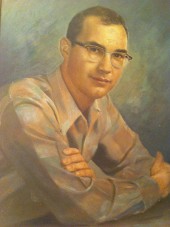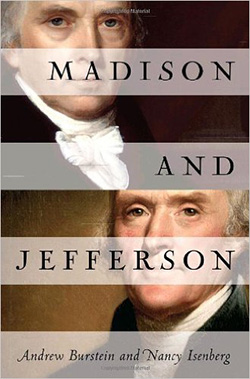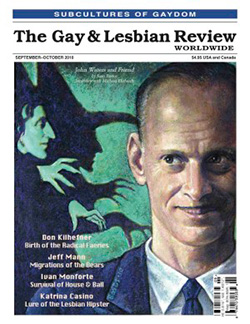 … and parallels with the Tea Party and the founders of America.
… and parallels with the Tea Party and the founders of America.
October 31, 2010.
If it is worthwhile and even important to try to learn how this nation was founded and who the founders were and how they thought about the government they were establishing (Constitution/Bill of Rights), then it is equally important for citizens to know how and why a movement was started go gain civil/equal rights for homosexual Americans, who the founders were, and what they thought about homosexuality.
This civil rights movement is easy to document, and primary sources still exist with a few of the founders and historical material of their work and ideas.
Each year there are more books written about the founding of America and the founders. But there has been no such historical interest in the founders of this movement, even though issues of homosexuality are in the pages of most newspapers, and on TV talk shows and in the halls of Congress.
Why is there no interest in knowing the people who started a movement that was successful in about 50 years and continues to add success each year, despite opposition from bigots?
In a few cases, people working in this movement also worked in the black or women’s civil rights movements, including Dr. King’s co-worker, Bayard Rustin. It should be worth knowing how Harry Hay, Dale Jennings, et al., started, in secret, the first organization, Mattachine (the foundation), in 1950, during the worst of times— the McCarthy anti-communist era when homosexuality was “joined” with Communism to gain political power. The irony is that most of the founders had been Communists but were kicked out of the party because of their sexuality—and thus they started this movement which has thrived while the Communist Party has essentially died.
But it is important to know that after early Mattachine was so wildly successful, with meetings all over Los Angeles and then California, it was “killed” and was reborn (as the Society) by Hal Call, et al., in San Francisco, by conservatives.
But before this happened, in 1953, part of the organization had separated in 1952 to become the public voice, and, under leadership of Dale Jennings, publish a magazine. And thus, under conservatives (especially Jennings, Don Slater, and Dorr Legg) was born the first homosexual magazine, ONE; social service organization; educational work—with classes (and ONE Institute and Quarterly), some of the first homosexual books (Homosexuals Today, Game of Fools), and public lectures and legal efforts (a lawsuit against the Post Office that went to, and was barely won in, the U.S. Supreme Court (1958).

Like a new current book on America’s founders, Madison and Jefferson, in which we again learn how the founders were able to work together while having different views on how america should be governed, a book should be written about how the pioneers of this movement also worked together, while having different views on homosexuality, how to change society, etc.
The two major views were important because they were so different.
The first was that of Harry Hay, covered in an article in one of the major lgbt publications trying to discuss serious issues, The Gay & Lesbian Review (“Harry Hay’s Essentialism,” January/February, 2008). The authors, Douglas Sadownick and Chris Kilbourne, make the point perfectly before writing a word, by quoting Harry himself:
We are a separate people, with, in several measurable respects, a rather different window, a different consciousness which may be triggered into being by our sexuality.
There can be no exaggeration of the importance of Harry, and his views still exist, and his work is added to in the current issue of The Review by a co-worker, Don Kilhefner, discussing another organization/work harry co-founded, the Radical Faeries (“The Radical Faeries at Thirty (+ one)”, Sep/Oct 2010).

This view was welcomed by closet cases and bigots since it fit the stereotype that we are different, exotic and not like the majority.
The second view was that of the ONE founders, mainly Don Slater and Dorr Legg. Their view was based partly on the work of Dr. Kinsey and Dr. Hooker. They took the view that this is not a lifestyle but a sex act, and all we needed was the right to privacy. We didn’t care what others thought, but they should not be allowed to vote about our civil rights, especially if they based their views on some religious doctrine.
And further, we did not want to be separate—it was only society that forced us to be a minority by passing laws against us. (This is also the view taken by a decision of the U.S. Supreme Court in a Colorado case.) We sought integration, not ghettos.
This is relevant to issues of the Tea Party people. What authority the government has over our personal lives is what the Constitution and Bill of Rights say. Don Slater said the legal people should re-read the Ninth Amendment.
The one point that has to be made, to newly “out” people and young homosexual men and women, is that, whether or not they know it or like it, how they live today is based on the work and views of both Harry Hay and Don Slater.
Even though they disagreed on what they both considered basic issues, they always worked together on the major efforts, and from the start to the day they died, they loved and admired each other.
And they worked. They didn’t sit in meetings talking about terminology and making up academic words and phrases such as “gay identity,” “deconstructionism,” “gay essentialism,” “social construction,” etc.
Our rights do not depend on why we are or if we could change; they are granted to us as individual citizens. It is time for Americans to stop trying to “understand” us but to understand why some people seem to hate us and have a personal interest in denying us our rights.
And our cause will continue to become even more successful if young people and citizens interested in all citizens having equal right join us. It is strange to hear some young people be so skeptical of politics and the ability to gain our goals. Some even think we have gotten everything we needed—full (or close enough) equality. The facts don’t support this—as suicides and bar raids in 2010 prove. And to those who think we have not made positive changes over the years, I suggest they get in a time machine and go back and live in 1950.
I say the same thing to some Tea Party people who want to go back to yesterday, when their kind were so happy and gay. That is because they were in control, a clear majority, and thus benefitted from the way things were. Let them try living in 1950 as a black or a homosexual citizen—and to do without the technology we have today.
Homosexual citizens and Tea Party citizens actually have the same problem with government: It is too involved in our personal lives.

